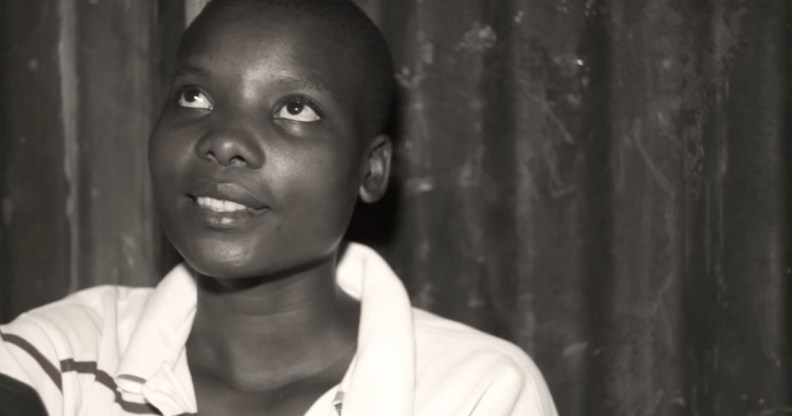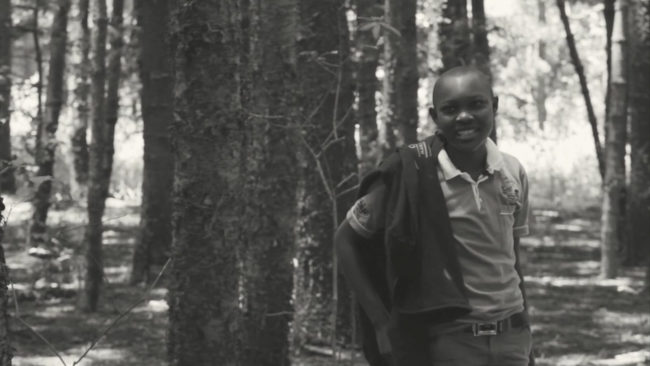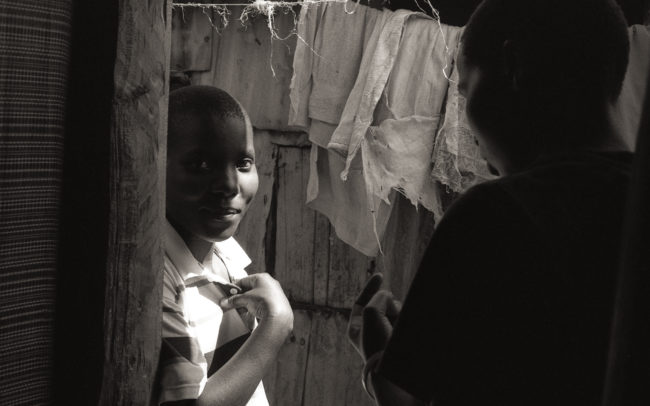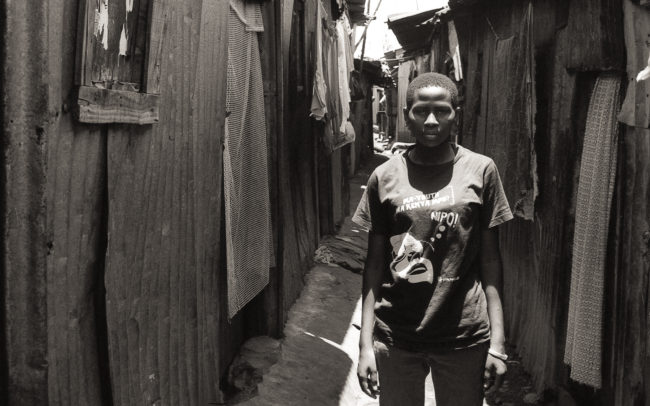Meet the activists fighting for transgender rights in Kenya

Intersex activist Sidney and his self-made trans family have faced attempted killings, exclusion and isolation in rural western Kenya.
Sidney was forced to flee his family after they tried to have him killed because they believed he was possessed by the devil.
Sidney is the focus of a documentary, Sidney & Friends, about intersex and trans life in Kenya and spoke to PinkNews about his journey to finding safety.
“I knew I was intersex after I joined LGBTI organisations and learned about it,” he explained.
“It was very hard to get information for I had not met someone like me and, making it harder, I was raised in rural area in a village which of course did have any information around intersex issues.
“I don’t have a good relationship with my family up to date, I believe in the intersex and transgender persons who I call my family today.”
Remember: “You are a spirit with a body, not a body with a spirit.”
https://bit.ly/2NQA2zYPosted by PinkNews on Wednesday, 19 September 2018
Despite the trauma Sidney has faced, he refuses to be anything but proud of being intersex.
“What I like about being intersex is that we are blessed and God’s creation.
“Being an intersex person in Kenya is a hard life full of struggles but it’s becoming easier since LGBTI organisations have been set up to fight for our rights.
“Allies can help in intersex issues through creating awareness and acceptance.
“My hopes now is if I can get some support to help me undergo my surgeries and live a normal life like other human beings.”
Sidney met Leone, who is trans, through his activism.
Leone told PinkNews: “I always knew I was different but I didn’t have a term for it until my late teens.
“Just like most trans people, I grew up with no information about gender diversity and only learned about the term ‘transgender’ from doing research on the internet.

Leone is a trans activist (Sidney & Friends)
“It took some time to come to terms with being trans, but for as long as I can remember, I felt different.
“My high school years were difficult because I was in a girls’ school and that’s when puberty hit. My gender dysphoria escalated. My parents didn’t take it very well.
“The first time I told my parents that I felt different than other girls—I didn’t know the term trans at that moment—they took me to religious leaders to pray for me.
Being trans in Kenya, Leone explained, is tough but often easier than elsewhere in East Africa.
“Kenya is a very conservative country which means being trans is something considered foreign,” he said.
“Also most people think being trans is a choice, which means being accepted by family and society is elusive for most of us.
“This impacts access to gender affirming healthcare and other services. Most of us are even denied basic healthcare services and comprehensive sexual and reproductive healthcare just because of our identity.
“However, compared to other East African countries, Kenya is much more tolerant to trans people as we are becoming more visible.”

Documentary Sidney & Friends follows trans and intersex activists in Kenya (Sidney & Friends)
Leone, along with his trans partner, have founded EATHAN, the East Africa Trans Health & Advocacy Network.
He describes EATHAN as a network of intersex, transgender and gender non-conforming individuals “working to eliminate transphobia and improve the livelihoods of all gender diverse East Africans through research, advocacy, capacity strengthening, movement building and community empowerment.”
Allies can help their cause by “trying to understand and learning more about gender diversity, advocating for us, being sensitive to our struggles, respecting us and our identities—the list is endless,” Leone said.
After all, Leone added, we are all “more than just our bodies.” All humans—trans or cis—are “a spirit with a body, not a body with a spirit.”
“Our body is just a vessel. We are spiritual beings having a human experience and not human beings having a spiritual experience,” he explained.
“This statement usually helps me remember the bigger picture and the complexity of our universe beyond just our struggles with our identities.”

A still from the documentary (Sidney & Friends)
The documentary Sidney & Friends was the result of a chance encounter between transboi and activist Guillit and director Tristan Aitchison, who was visiting his sister in Kenya.
He knew immediately there were trans stories that needed telling, but filming was a challenge in a country that is far from supportive of LGBT+ rights.
He told PinkNews: “I was filming illegally in Kenya. I did not have a permit, it would have been refused anyhow, and I never wanted to draw attention to the contributors.
“It was nearly impossible to find locations to film the interviews or the group of friends together. Most of the contributors were estranged from their families or living in poverty.
“I shot in the home of Ben and Sidney in a slum, but could only go there once so not to arouse suspicion. A forest was the only place that was safe to get everyone together to film.
“I can no longer go back to Kenya without the threat of 5 years imprisonment. But really, that’s a small price to pay for the freedom that Sidney and his friends’ voices now have.”

